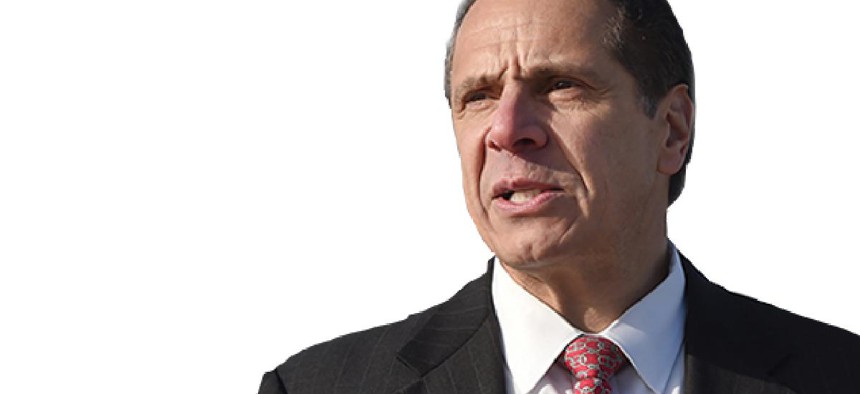Gov. Cuomo's budget short changes New York's nonprofit workers

For New York’s human services nonprofits, this is a particularly challenging budget year in Albany. Gov. Andrew Cuomo's executive budget proposal starts with a projected gap of $4.4 billion for the fiscal year that begins this April 1. Nonprofits will get hit by some of the state’s proposed cuts and there is a great deal of uncertainty regarding what the impact might be if there are steep federal budget cuts to the social safety net in the wake of the deficit-enlarging federal tax-cutting bill.
Cuomo is right to sound the alarm about the damaging effects of the federal tax bill’s limitations on the deductibility of state and local taxes. In addition, the federal bill puts an even greater share of the federal tax burden on New York state than before. This is of particular concern considering that New York already sends $48 billion more to Washington, D.C. each year than it gets back in services and other program benefits.
Nonetheless, it is important to keep in mind that three-quarters of the projected state budget deficit for the coming year is the result of corporate, estate and middle and upper-middle income tax cuts that Albany enacted in recent years.
The latest state budget proposal continues the pattern in recent years where human services nonprofit organizations are short-changed. Plans to close the budget gap include $31 million in cuts to New York City that would end state funding for the Close to Home juvenile justice program. The state budget would also tightly cap the state’s share of child welfare reimbursements - even though New York City has been expanding these preventive services in response to the growing need. It is projected that the cap would reduce state reimbursements to the city by nearly $130 million, with much of that affecting services provided by nonprofits.
Gov. Cuomo deserves significant credit for pushing through an historic phased-in increase in the state minimum wage to $15. After many years of stagnation or outright erosion in the face of steady increases in the cost of living, the earnings for low-wage New York workers are finally starting to rise . However, for the third year running the governor fails to include any funding to help nonprofits delivering human services under state contract offset the cost of raising their worker’s pay.
It almost seems as if the governor is singling out nonprofit human service workers. The state budget includes $700 million to fund minimum wage increases for workers providing services reimbursed by Medicaid while the request by human service nonprofits in the Strong Nonprofits for a Better New York coalition for $23 million to fund the minimum wage for direct contracted organizations and $65 million for overdue salary adjustments has fallen on deaf ears.
While the state budget document notes that nonprofit human services organizations face high employee turnover rates and discusses the state’s intent to convene a human services workforce summit, it is puzzling that the budget neglects to take even an initial step in terms of funding the state minimum wage increase. Improved wages would certainly help with recruitment and retention issues, but since many nonprofits depend on government contracts to fund the administrative and programmatic cost of delivering public services, the state’s budget failure essentially exacerbates the employee retention problem.
This year’s budget cuts are being piled on top of the losses to the nonprofit sector that have come from the two percent state spending cap the governor established in 2012. State funding stagnated while the budget was relatively flush, and the governor and the legislature teamed up to cut taxes.
Continued adherence to the two percent spending cap likely will mean further cuts in future years since the proposed budget outlines $13 billion in cuts over the next three years and details as to program impact are not provided.
It is understandable that much attention is being devoted in Albany this budget season to the problems posed by the incredibly top-heavy federal tax cuts and the way the tax bill shifts more of the burden of federal taxes onto New York State. And it is appropriate that Albany eyes warily possible federal budget cutting measures that could harm the well-being of millions of New Yorkers. However, those legitimate federal concerns should not detract from the need for Albany to craft a budget that enables nonprofit human services providers to better retain the skilled and dedicated workers needed to provide high quality public services to New York’s children and vulnerable communities.
James Parrott is the director of economic and fiscal policies at The New School's Center for New York City Affairs.
This piece has been updated to more accurately state the impact of the state's proposed cap on reimbursements to the city.
NEXT STORY: NYN Media Buzz: Feb. 5, 2018
